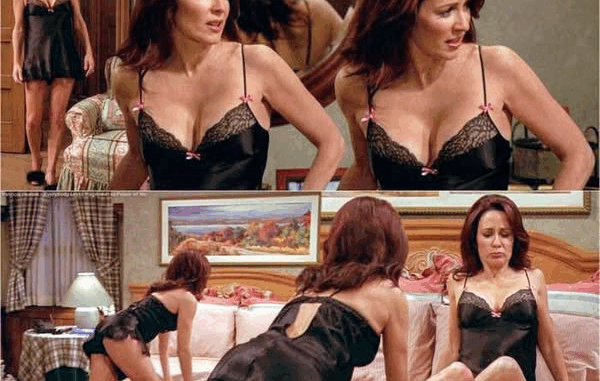
When people think of classic sitcoms, Everybody Loves Raymond often makes the top of the list. The show wasn’t flashy, over-the-top, or loaded with gimmicks—it thrived on everyday family life and sharp comedic timing. But according to creator Phil Rosenthal, the beloved series almost took a very different turn.
In a recent revelation, Rosenthal explained that CBS executives originally wanted a “hotter” actress to play Debra Barone, the no-nonsense wife of Ray Romano’s character. Yes, the network believed the role needed someone with a more “glamorous” appeal. Thankfully, Rosenthal pushed back—and television history was made.
Let’s dive into why the network wanted this change, how Patricia Heaton landed the role anyway, and why her casting was critical to the show’s long-term success.
The Network’s Vision vs. The Creator’s Intent
CBS’s Idea of a Sitcom Wife
Television executives often chase trends. In the late 1990s, the idea of a sitcom wife leaned toward glamorous, polished women—more fantasy than reality. CBS reportedly thought the actress playing Debra should be “hotter” to fit this mold.
Rosenthal’s Relentless Defense
Phil Rosenthal, however, envisioned something different. He wanted authenticity over glamour. He believed Debra should represent the everyday wife and mother—relatable, grounded, and witty.
He recalled saying: “If you want the show to feel real, you can’t have a supermodel doing the laundry.”
The Audition That Changed Everything
Patricia Heaton Steps In
Patricia Heaton auditioned for the role and instantly clicked with Ray Romano. Their chemistry was undeniable, making the characters’ marriage believable and deeply relatable.
A Relatable Everywoman
Heaton brought warmth, sharp comedic timing, and relatability. She wasn’t “too polished” or “too glamorous”—and that was exactly what made her perfect.
Why a ‘Hotter’ Debra Wouldn’t Have Worked
Relatability Was Key
The strength of Everybody Loves Raymond was that it mirrored real life. Viewers didn’t just laugh at the jokes—they saw themselves in the Barone family.
If Debra had been played as a glamorous, unattainable wife, it would have broken the illusion of authenticity.
Comedy Thrives on Realism
Comedy often works best when grounded in reality. Heaton’s performance gave Romano’s humor a perfect balance. Without her, many argue the show wouldn’t have lasted nine seasons.
The Risk of Losing Authenticity
Other Sitcoms vs. Raymond
At the time, many sitcoms were filled with “too-perfect” characters. Rosenthal didn’t want that. He wanted audiences to say, “That’s my family.”
Heaton’s Natural Fit
Patricia Heaton wasn’t cast to be eye candy—she was cast because she embodied the frustrations, joys, and humor of a real wife and mother.
Behind-the-Scenes Tension
Executives vs. Creative Vision
Rosenthal has admitted that the debate with CBS was not easy. Executives pushed for more glamour, while Rosenthal insisted that comedy was about truth, not fantasy.
Ray Romano’s Support
Ray Romano also backed Heaton, saying their chemistry was essential to the show’s success. Without his support, the network might have forced their decision.
The Impact on Patricia Heaton’s Career
From Uncertainty to Stardom
Before Raymond, Heaton had struggled in Hollywood, bouncing between roles. Landing Debra Barone was a turning point that transformed her into a household name.
Awards and Recognition
Heaton went on to win two Emmy Awards for her performance, proving Rosenthal’s instincts were right all along.
Audience Reception
Why Viewers Loved Debra
Debra wasn’t just a wife—she was a strong, witty woman who didn’t put up with Ray’s antics. Viewers related to her frustrations, admired her resilience, and laughed at her sharp comebacks.
The Power of Authenticity
Audiences didn’t want perfect—they wanted real. That’s why Heaton’s performance resonated so deeply.
The Cultural Lesson Behind the Casting Battle
Hollywood’s Obsession With Glamour
This casting story highlights a larger issue: Hollywood’s tendency to favor looks over substance. Rosenthal’s refusal to compromise showed that talent and authenticity can—and should—win.
Breaking the Mold
By sticking with Heaton, Everybody Loves Raymond broke the mold of the “sitcom wife” and paved the way for more realistic portrayals of women on TV.
What If CBS Had Won?
An Alternate Reality
Had CBS gotten its way, the show might have looked more like a glossy fantasy than a grounded family comedy. It’s possible the show wouldn’t have connected with audiences at all.
No Heaton, No Raymond
Without Heaton, it’s hard to imagine Everybody Loves Raymond reaching the same cultural impact—or even lasting beyond a season or two.
Legacy of the Casting Decision
Still Discussed Decades Later
Even decades after the show’s debut, fans and critics still talk about Heaton’s perfect casting. It’s proof that sometimes resisting network pressure leads to timeless success.
Inspiring Future Creators
Rosenthal’s fight is now cited as an example for other showrunners: stay true to your vision, even when the network pushes back.
Conclusion
The story of how Patricia Heaton became Debra Barone is more than just a casting anecdote—it’s a lesson in authenticity, vision, and creative integrity. CBS wanted a “hotter” actress, but Phil Rosenthal knew the role required truth, not glamour.
Heaton’s Debra was relatable, sharp, and real—exactly what the show needed to resonate with millions of viewers. Without her, Everybody Loves Raymond might not have become the cultural phenomenon it is today.
Sometimes, the best casting decisions aren’t about looks—they’re about heart, chemistry, and the ability to reflect real life. And in that sense, Patricia Heaton was perfect.
FAQs
1. Who originally wanted a “hotter” Debra on Everybody Loves Raymond?
CBS executives suggested it, but creator Phil Rosenthal pushed back.
2. Why was Patricia Heaton ultimately cast as Debra Barone?
Her chemistry with Ray Romano and her authentic, relatable performance won the role.
3. Did Patricia Heaton win awards for Everybody Loves Raymond?
Yes, she won two Emmy Awards for her portrayal of Debra.
4. How long did Everybody Loves Raymond run?
The show lasted nine successful seasons from 1996 to 2005.
